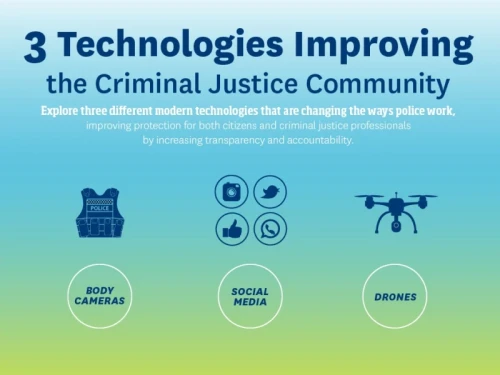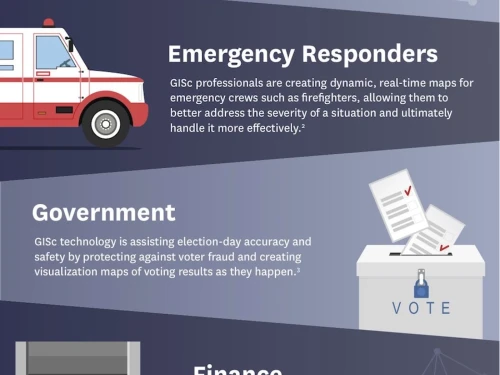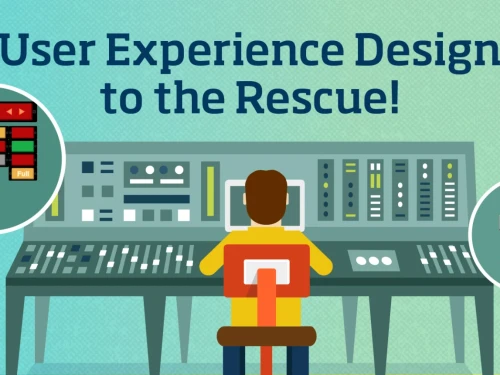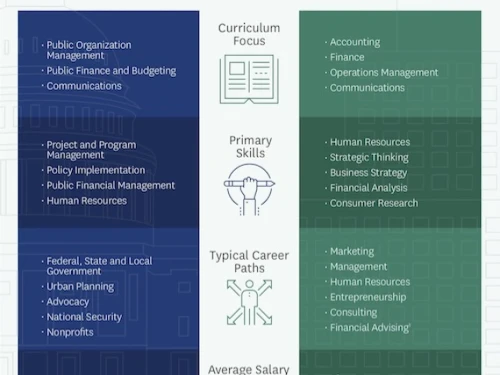Kent Online Degrees Blog
Discover a wealth of valuable insights and resources on Kent State Online blogs. Our expertly curated content offers practical tips, industry trends, and academic guidance to support your educational journey. From career development to academic success strategies, our blog covers diverse topics to empower learners like you. Stay informed, inspired, and ahead of the curve with Kent State Online blogs—your go-to destination for enriching content tailored to your needs.
Latest Posts
Public health experts have never been more important than they are in the world today. From cancer to Ebola to COVID-19, major health events affect us all. As globalization, climate disasters and economic and social disruptions expand, we need trained professionals to help mitigate those threats. To meet health needs, public health professionals continue to serve and protect through research, policymaking and administration in the field of infectious disease preparedness and prevention. Specialists in the field of epidemiology are responsible for some of today’s most important public health research and data analysis.
Explore More About the Kent State Online Experience with These Videos

What is Geographic Information Science at Kent State University?

What Can I Expect from an Online Master’s Degree in Geographic Information Science from Kent State?

Kent State University Online Master of Music in Music Education Degree Program Overview

Bambi leveled up in life, scoring an Interprofessional Leadership Ed D degree from Kent State Online

What is Alice doing with her Online Masters in Cultural Foundations degree from Kent State Online?

What is the benefit of getting a Master’s Degree in Criminology and Criminal Justice online?

What can I do with an Online Master in Music in Music Education degree from Kent State University?

How Do I Teach and Get a Degree at the Same Time? Online Master of Music in Music Education

How Hollie enhanced her career with an Online Nonprofit Management Graduate Certificate Program.

Sarah’s Online Master of Education degree in Cultural Foundations experience at Kent State Online

What can I expect from the online program in Criminology and Criminal Justice at Kent State?

What Courses Will I Take in the Online Master of Geographic Information Science at Kent State?

Utilizing an Interprofessional Leadership Ed. D. from Kent State Online within real-world scenarios.

Yasmeen gives insight into the Online Master of Public Administration degree at Kent State Online

Discover how Eli’s experience at Kent State Online has boosted his public administration career

How does Pedagogy Play a Role in the Online Master of Music in Music Education degree at Kent State?

What can I do with an online degree in Criminology and Criminal Justice at Kent State University?
As technology evolves, it adapts to our social habits and expectations while simultaneously broadening our awareness of local, national and international current events. In recent years, this has included greater awareness of community-police relations, a few specific instances of which have had tragic outcomes and caused public scrutiny of modern policing tactics. The cumulative impact of these incidents, in conjunction with an increasingly all-encompassing and remotely accessible internet, has necessitated the integration of more and smarter technology into contemporary police work.
Human activity has had an effect on the environment for thousands of years, from the time of our very earliest ancestors. Since Homo sapiens first walked the earth, we have been modifying the environment around us through agriculture, travel and eventually through urbanization and commercial networks. At this point in earth’s physical history, our impact on the environment is so substantial that scientists believe “pristine nature,” or ecosystems untouched by human intervention, no longer exist.1
There’s an old adage nearly everyone’s heard: “Work a job you love, and you’ll never work a day in your life.” As true as this sentiment may be, the facts about employment suggest that a majority of people are not working jobs they love. In fact, far from it.
Today’s interactive designers are tasked with consistently achieving something more than aesthetically striking creative. In today’s marketplace, digital media is king—and the evolving need for digital marketing is far more complex than that of more traditional marketing channels. Designers must consider the different journeys being undertaken by those for whom they are designing. They must design with the knowledge that 30 percent of all commerce is conducted on a mobile phone and let the platform a person may be using inform their work.1
On Saturday, January 13, 2018, a terrifying message populated the screens of over a million smartphones in Honolulu, Hawaii. It read: “BALLISTIC MISSILE THREAT INBOUND TO HAWAII. SEEK IMMEDIATE SHELTER. THIS IS NOT A DRILL.” As the world now knows, this turned out to be a false alarm. An investigation into the incident found that the message was sent by mistake when a state employee hit the wrong button during an internal drill.1
No matter the industry in which you plan to pursue employment, investing in a master’s degree can help you rise to the top of your organization. But not all master’s degrees are created equal.
The experience one has when interacting with technology is fundamentally human. Our digital lives—from navigating a tablet to paying at a bank kiosk—have become so ubiquitous, interwoven and essential to the way we interact with the world and others, that it’s almost hard to remember what life was like before these technologies existed. Simply put, we depend on technology to move our lives forward. It plays a critical role in our individual storylines as well as our collective narrative.
In the modern world, media is saturated with images of natural disasters and their impacts on human health and infrastructure. And while the most memorable images for many are of the damages done by hurricanes, tornadoes or earthquakes, in the U.S., the deadliest atmospheric hazard over the last few decades has been excessive heat. While everyone generally knows the advice to take it easy during hot weather, it tends to get much less attention than other hazards because its impacts are not nearly as visibly dramatic. This said, several hundred people a year in the U.S. on average still die from excess heat.
Imagine a town that wants to improve access to its public buildings. Theoretically, the citizens of the town could appeal to their elected officials for the change and maybe vote on a ballot measure. Once that measure has passed, officials could craft a policy addressing the need for improved access, and then allocate the funds...and then things get a little tricky.
Throughout the mid-19th century, clinicians noted the impact of socio-environmental factors on healthcare. From unusually high incidences of breast cancer in Italian nuns to cancers that only seemed to affect chimney sweeps in Great Britain, medical literature of the period carefully traced the connections between cultural background and wellness. This led some physicians to theorize that disease was strongly related to societal dysfunction and inequality, and that improving schools and working conditions could help to alleviate disparities in mortality across social classes.










